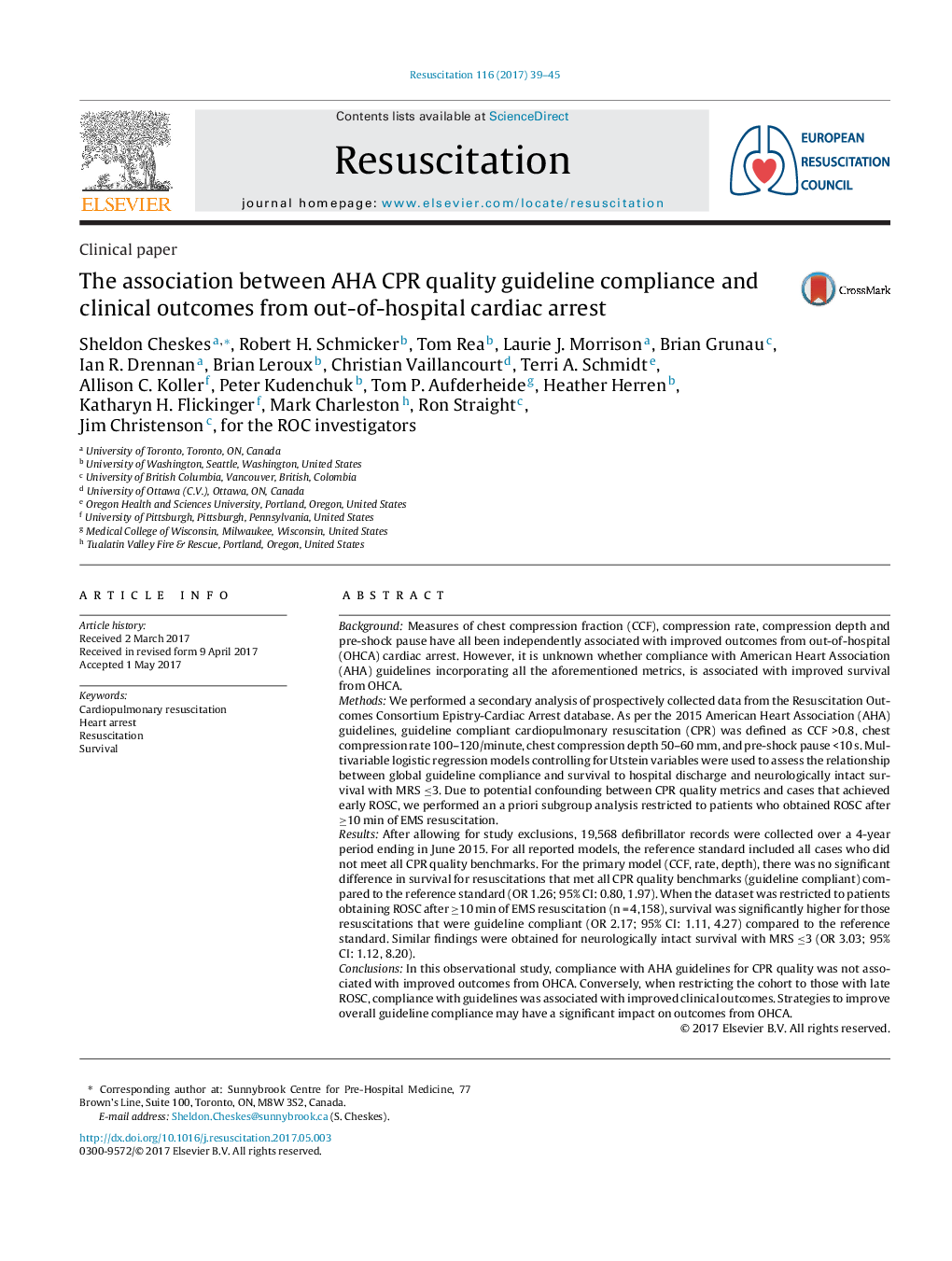| کد مقاله | کد نشریه | سال انتشار | مقاله انگلیسی | نسخه تمام متن |
|---|---|---|---|---|
| 5620118 | 1578968 | 2017 | 7 صفحه PDF | دانلود رایگان |

BackgroundMeasures of chest compression fraction (CCF), compression rate, compression depth and pre-shock pause have all been independently associated with improved outcomes from out-of-hospital (OHCA) cardiac arrest. However, it is unknown whether compliance with American Heart Association (AHA) guidelines incorporating all the aforementioned metrics, is associated with improved survival from OHCA.MethodsWe performed a secondary analysis of prospectively collected data from the Resuscitation Outcomes Consortium Epistry-Cardiac Arrest database. As per the 2015 American Heart Association (AHA) guidelines, guideline compliant cardiopulmonary resuscitation (CPR) was defined as CCF >0.8, chest compression rate 100-120/minute, chest compression depth 50-60 mm, and pre-shock pause <10 s. Multivariable logistic regression models controlling for Utstein variables were used to assess the relationship between global guideline compliance and survival to hospital discharge and neurologically intact survival with MRS â¤3. Due to potential confounding between CPR quality metrics and cases that achieved early ROSC, we performed an a priori subgroup analysis restricted to patients who obtained ROSC after â¥10 min of EMS resuscitation.ResultsAfter allowing for study exclusions, 19,568 defibrillator records were collected over a 4-year period ending in June 2015. For all reported models, the reference standard included all cases who did not meet all CPR quality benchmarks. For the primary model (CCF, rate, depth), there was no significant difference in survival for resuscitations that met all CPR quality benchmarks (guideline compliant) compared to the reference standard (OR 1.26; 95% CI: 0.80, 1.97). When the dataset was restricted to patients obtaining ROSC after â¥10 min of EMS resuscitation (n = 4,158), survival was significantly higher for those resuscitations that were guideline compliant (OR 2.17; 95% CI: 1.11, 4.27) compared to the reference standard. Similar findings were obtained for neurologically intact survival with MRS â¤3 (OR 3.03; 95% CI: 1.12, 8.20).ConclusionsIn this observational study, compliance with AHA guidelines for CPR quality was not associated with improved outcomes from OHCA. Conversely, when restricting the cohort to those with late ROSC, compliance with guidelines was associated with improved clinical outcomes. Strategies to improve overall guideline compliance may have a significant impact on outcomes from OHCA.
Journal: Resuscitation - Volume 116, July 2017, Pages 39-45